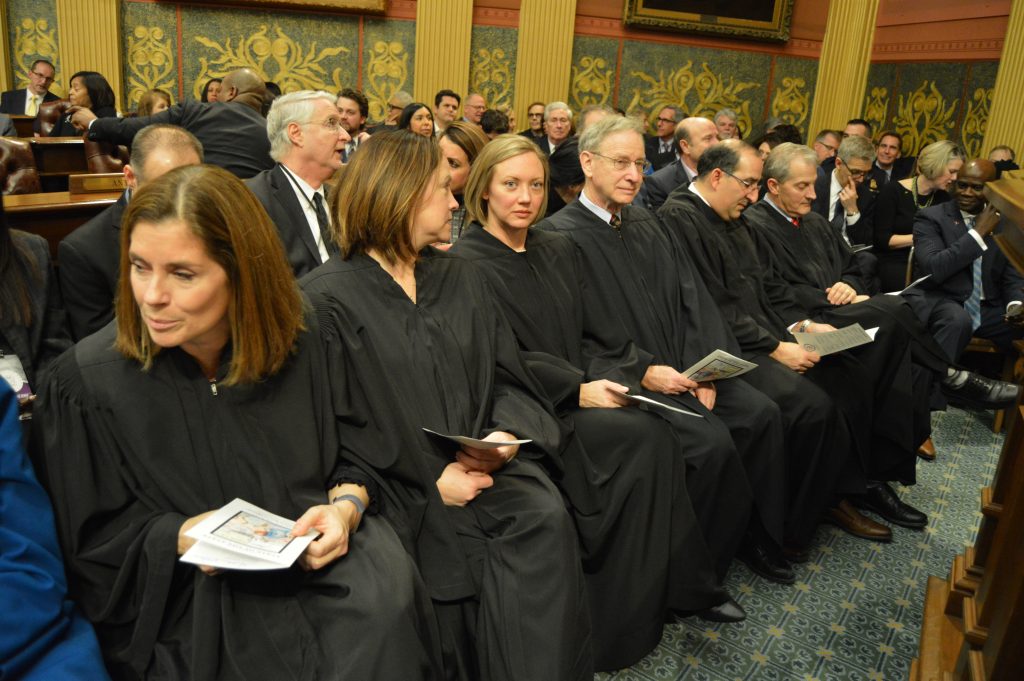New Year Means New Democratic Majority on State Supreme Court
The change in party majority is one of the biggest political shifts in Michigan government, but few people are talking about it.

A new year means big changes for the Michigan Supreme Court (MSC). Justices nominated by Democrats won a 4-3 majority on the court in the November election. It’s the first time Democrats have held a majority on the court since 2010, when they held a short-lived 4-3 advantage over Republicans.
MichMash hosts Cheyna Roth and Jake Neher talk on this week’s episode about how significant that change could be.
Subscribe to MichMash on iTunes, Spotify, Google Podcasts, NPR One or wherever you get your podcasts.
Michigan’s strange partisan/non-partisan Supreme Court election
Even people who cast ballots in the November election might be surprised to find out that contests for MSC seats are partisan in the first place. That’s because Michigan has a weird way of electing state Supreme Court justices. Political parties nominate their candidates for the seats at their summer conventions, but those nominees appear on the nonpartisan section of the ballot without any indication of which party nominated them in the first place.
This year, two candidates nominated by Democrats won those contests, flipping control of the court for the first time in ten years.
Current MSC Chief Justice Bridget Mary McCormack won reelection, and Elizabeth Welch won an open seat on the court previously held by conservative justice Stephen Markman, who could not run for re-election due to the court’s age limits.
What this means for Michigan politics and policy
If you talk with some of the justices, they will tell you that they don’t vote a certain way just because they are Republicans or Democrats. But experts who study the court will tell you that the party that nominates a justice does matter. They say the most consequential cases are often not black-and-white; they are open to legal interpretation, which is often colored by their judicial ideology. That ideology usually tracks with the party that nominated them. At the very least, it plays a role.
As an example, consider the most consequential Michigan Supreme Court decision of this year. The Republican-led Legislature sued Gov. Gretchen Whitmer over the laws she was using to issue orders meant to slow the spread of COVID-19. The court split right down ideological lines on one of the laws, effectively killing her orders and her ability to issue more orders under that law.
These kinds of party-line decisions don’t represent most decisions made by the court and are becoming fewer and farther between in an especially cooperative era of the state Supreme Court. But they still happen, and when they do, they are usually deciding some of the most controversial cases that come before the court.
Each year brings more consequential MSC rulings, and there’s no reason to think 2021 will be any different. But if there are more partisan splits next year, it will be Democrats who decide those cases.
Trusted, accurate, up-to-date
WDET is here to keep you informed on essential information, news and resources related to COVID-19.
This is a stressful, insecure time for many. So it’s more important than ever for you, our listeners and readers, who are able to donate to keep supporting WDET’s mission. Please make a gift today.
